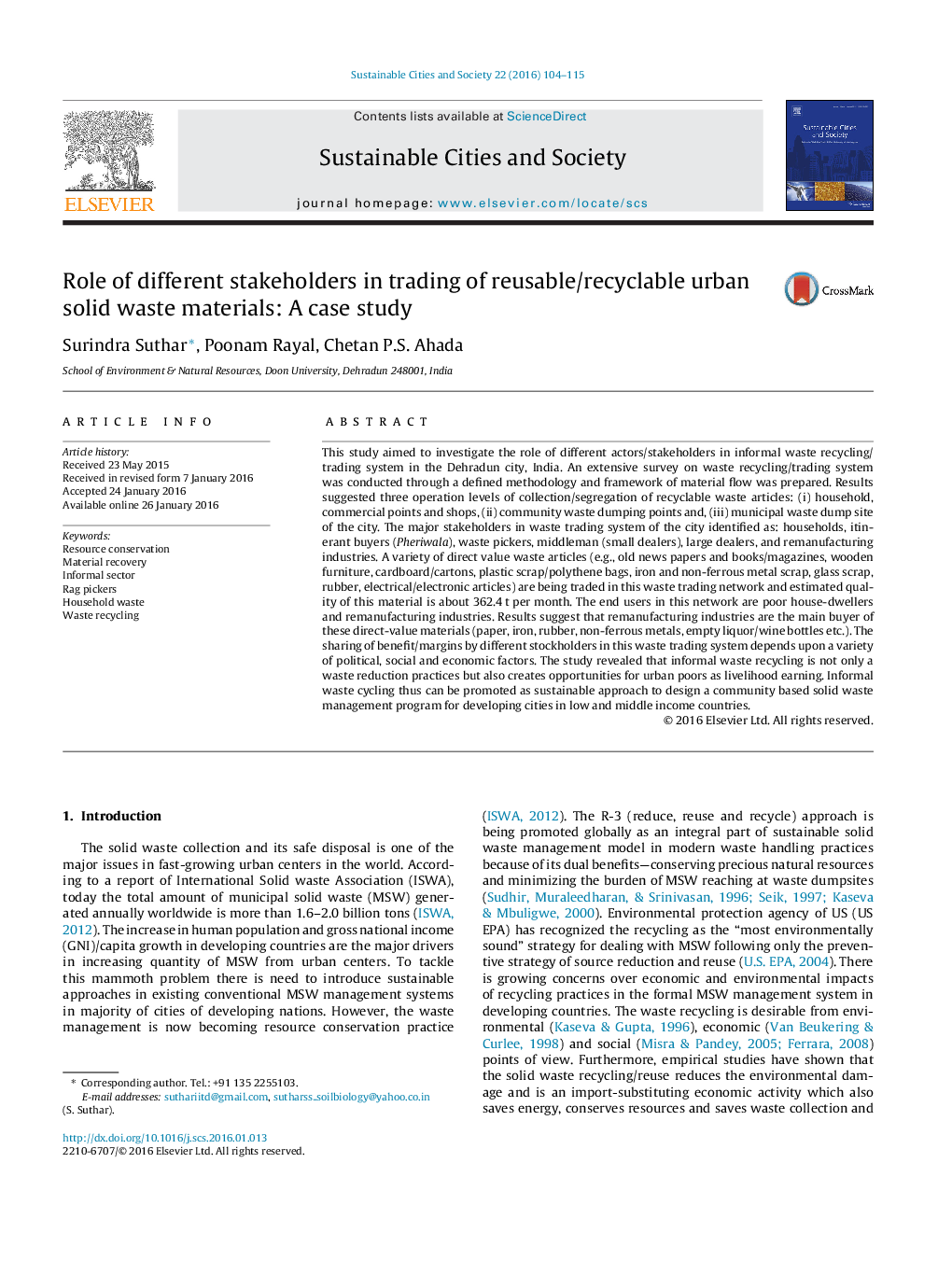| کد مقاله | کد نشریه | سال انتشار | مقاله انگلیسی | نسخه تمام متن |
|---|---|---|---|---|
| 308068 | 513520 | 2016 | 12 صفحه PDF | دانلود رایگان |
• The informal waste recycling and trading system has been appeared as an important sector in the city in terms of livelihood earning in urban poors.
• The remanufacturing industries buy direct value waste materials (plastic, polythene, iron, metal, paper, rubber etc.) to be used as secondary raw materials.
• The role of different stakeholders in this waste trading system depends upon a variety of political, social and economic factors.
This study aimed to investigate the role of different actors/stakeholders in informal waste recycling/trading system in the Dehradun city, India. An extensive survey on waste recycling/trading system was conducted through a defined methodology and framework of material flow was prepared. Results suggested three operation levels of collection/segregation of recyclable waste articles: (i) household, commercial points and shops, (ii) community waste dumping points and, (iii) municipal waste dump site of the city. The major stakeholders in waste trading system of the city identified as: households, itinerant buyers (Pheriwala), waste pickers, middleman (small dealers), large dealers, and remanufacturing industries. A variety of direct value waste articles (e.g., old news papers and books/magazines, wooden furniture, cardboard/cartons, plastic scrap/polythene bags, iron and non-ferrous metal scrap, glass scrap, rubber, electrical/electronic articles) are being traded in this waste trading network and estimated quality of this material is about 362.4 t per month. The end users in this network are poor house-dwellers and remanufacturing industries. Results suggest that remanufacturing industries are the main buyer of these direct-value materials (paper, iron, rubber, non-ferrous metals, empty liquor/wine bottles etc.). The sharing of benefit/margins by different stockholders in this waste trading system depends upon a variety of political, social and economic factors. The study revealed that informal waste recycling is not only a waste reduction practices but also creates opportunities for urban poors as livelihood earning. Informal waste cycling thus can be promoted as sustainable approach to design a community based solid waste management program for developing cities in low and middle income countries.
Journal: Sustainable Cities and Society - Volume 22, April 2016, Pages 104–115
